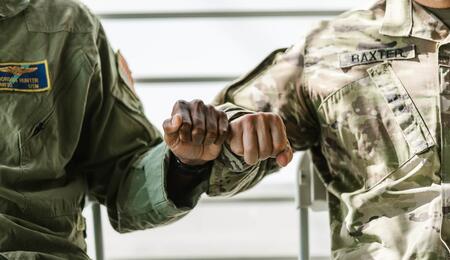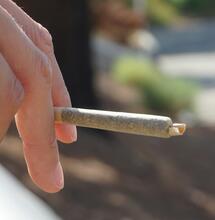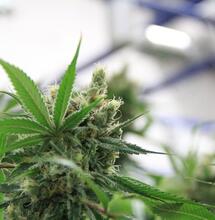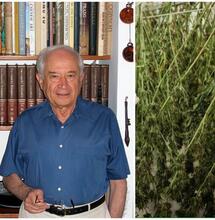Cannabis Use Among Veterans on the Rise

A new survey reveals that veterans increasingly seek cannabis to treat various medical conditions, such as PTSD or pain relief. The survey looked at a group of over 16,000 U.S. veterans from the years 2013 to 2019 and found that one in 10 veterans reported cannabis use within the year past.
The survey was carried out by a pair of researchers associated with the University of North Texas and the University of Illinois; the results of their study were issued in the journal Substance Use and Misuse.
The survey sourced data from the National Survey on Drug Use and Health and featured a total of 16,350 veterans aged 18 to 65 and older. Researchers identified a solid increase (56%) in overall cannabis use from 2013 to 2019, where nearly one in 10 veterans (9.79%) reported the use of cannabis within the past twelvemonth.
Another intriguing finding is that older veterans, or those aged 35 years old and above, were more likely to report using medicinal cannabis in the year past than those in the 18-25 age cohort.
Some of the study's respondents acknowledged obtaining authorization for cannabis use from a healthcare provider. This largely owes to federal restrictions applying to providers associated with the Department of Veterans Affairs, preventing them from issuing recommendations. The restriction is active everywhere, including in states with medical cannabis programs in place.
"This increase, in the context of federal VA provider restrictions, has implications for issues of care coordination and safe supply for veterans," the authors wrote in the study conclusion. "Given the rapidly changing and heterogenous landscape of recreational and medical marijuana policy in the US, the present study may inform harm reduction efforts and behavioral interventions."
The researchers further note that their findings indicate a need for "enhanced care coordination" among those who may benefit from marijuana but cannot access it through the VA.
In the U.S., VA providers can only discuss cannabis use with veterans, but the federal Schedule I classification prevents VA clinicians from recommending or covering medical cannabis.
Looking at Canada, Veterans Affairs Canada (VAC) has various policies to ease access to cannabis among Canadian servicemen. For example, VAC has a reimbursement policy for medical cannabis, which applies to Canadian veterans and allows reimbursement of up to three grams a day. The VAC has also established a fixed rate of up to $8.50 per gram, available as a dried flower or equivalent in other derivatives such as oil.
A growing amount of evidence points out that cannabis can help with various health conditions that veterans might struggle with. The latest survey is merely a confirmation that more and more veterans are aware that cannabis can be of their aid and that, one way or another, they will find access to it.
Last but not least, there appears to be a growing show of support for legalization among veterans. Another recent survey sheds light to views shared among that Iraq and Afghanistan Veterans of America (IAVA), a group comprised of over 400,000 veterans. It was found that 83% of IAVA servicemen supported legal access to medical cannabis, while 55% backed recreational legalization. In addition, 89% reported that they would be interested in using cannabis if it was made available to them.
All of these numbers and figures make it more than obvious that U.S. veterans are dearly waiting on federal change on the regulation on Cannabis.











